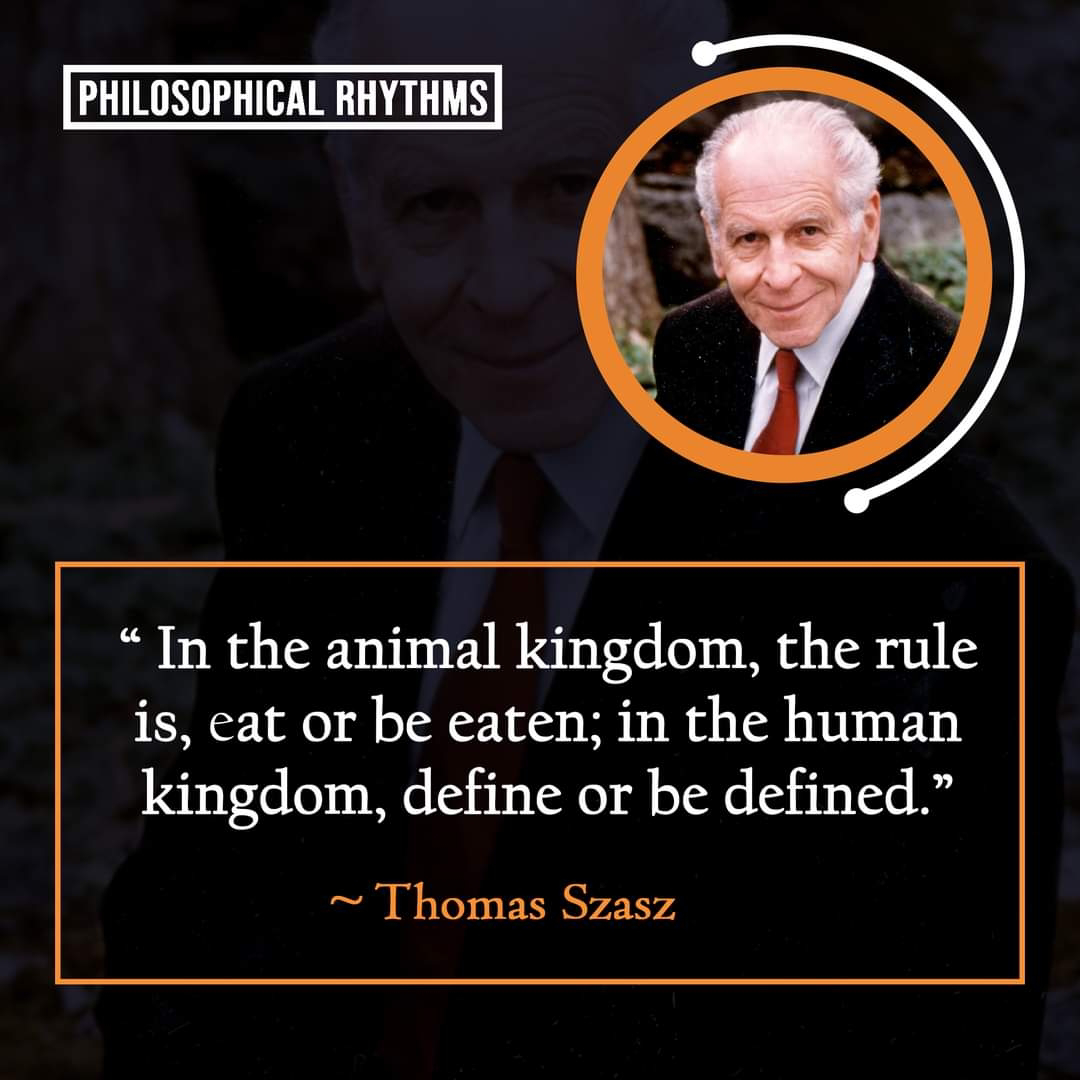Thomas Szasz's quote, "In the animal kingdom, the rule is, eat or be eaten; in the human kingdom, define or be defined," encapsulates a profound observation about the fundamental differences in survival mechanisms between animals and humans.
Thomas Szasz's quote, "In the animal kingdom, the rule is, eat or be eaten; in the human kingdom, define or be defined," encapsulates a profound observation about the fundamental differences in survival mechanisms between animals and humans. From his book "Words to the Wise: A Medical-Philosophical Dictionary," Szasz provides an insightful commentary on human social existence and interaction, particularly through the lens of language and identity.
In the animal kingdom, survival is predominantly governed by physical power and instinctual behaviors. The law of the jungle—eat or be eaten—illustrates a straightforward, albeit brutal, reality where survival often depends on a creature’s ability to hunt or evade being hunted. This paradigm is direct and governed by biological and ecological imperatives.
Contrastingly, in the human realm, Szasz suggests that survival hinges on more complex and abstract processes, notably those of definition and identity. Humans, unlike animals, use language as a tool not just for basic communication but for constructing and navigating social hierarchies and structures. The phrase "define or be defined" points to the socio-linguistic battles humans engage in to establish their place in society. Identity in humans is not a given; it is continuously shaped and reshaped through language, culture, politics, and personal interactions.
The power of definition is both a weapon and a shield in human societies. It can categorize, liberate, or oppress. Definitions can empower individuals when they seize the narrative of their own identity, or it can diminish them if others impose limiting or derogatory labels. This dynamic is evident in various contexts, such as politics, where rhetoric shapes public opinion; in culture, where media representations influence societal norms; and in personal interactions, where the way we speak about and to each other can significantly affect our relationships and self-esteem.
Szasz, who was a psychiatrist known for his criticism of the moral and scientific foundations of psychiatry, often explored the implications of defining mental health and illness. His views suggest that psychiatric labels could confine or liberate a person, depending on how those definitions are constructed and applied. Thus, his quote may also be seen as a critique of how societal structures—like psychiatry—impose identities on individuals, often without their consent.
This interplay between "defining" and "being defined" extends to broader discussions about freedom and autonomy. It highlights a critical aspect of human social life, where not just physical survival, but psychological and social integrities are at stake. To define oneself is an act of agency and self-determination; to be defined by others can be an act of subjugation.
Ultimately, Szasz's statement is a call to awareness. It urges us to recognize the profound power of words and definitions and to be mindful of how we use language.


